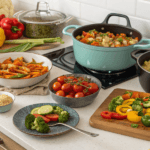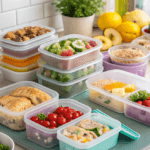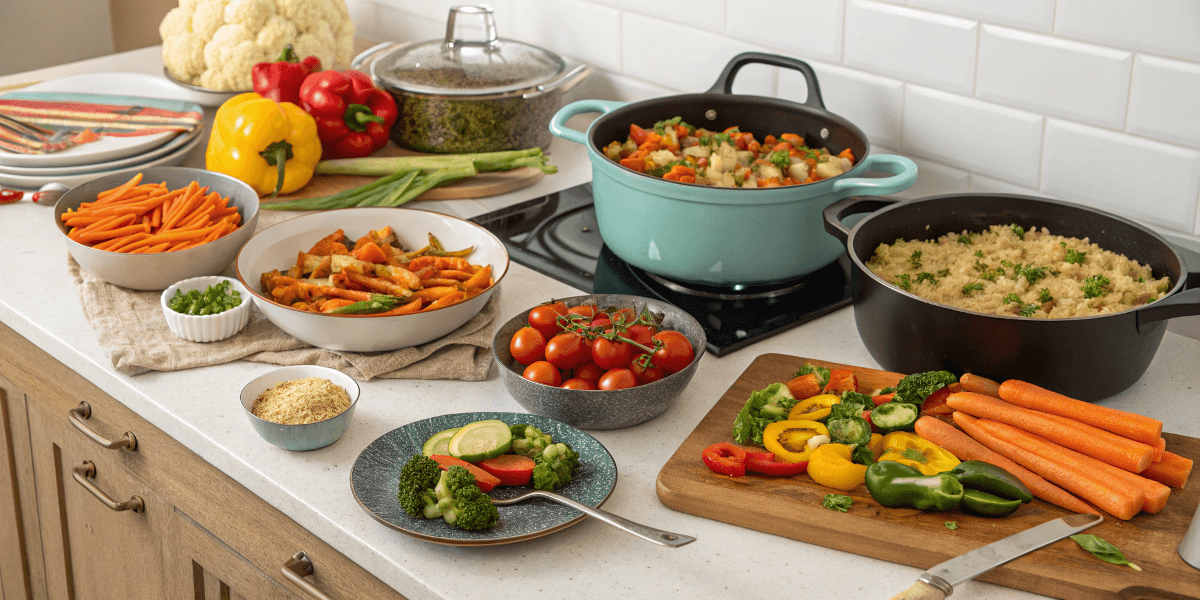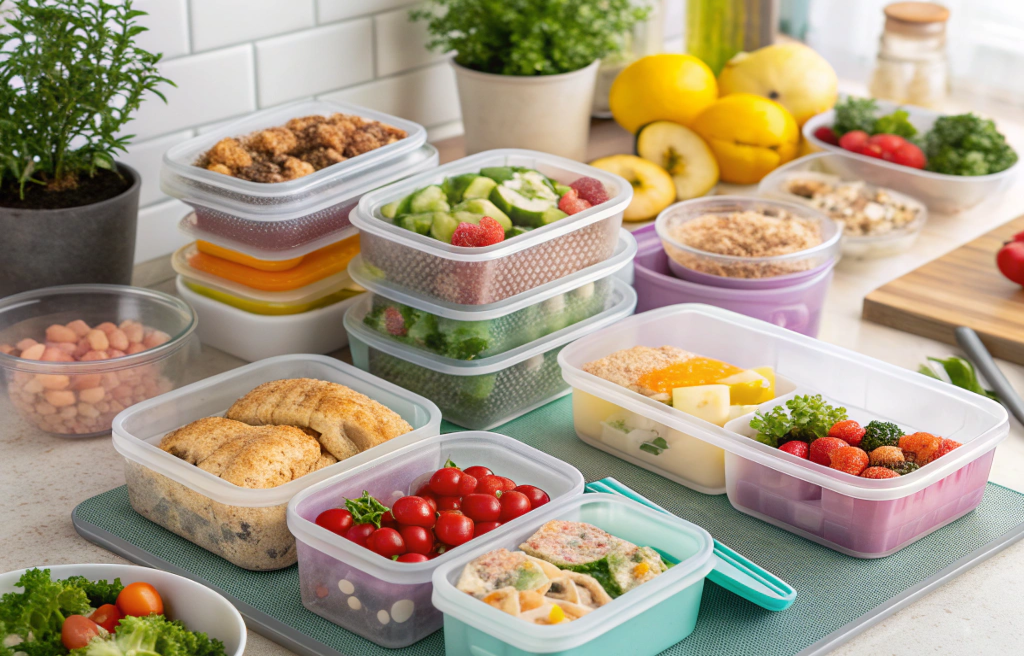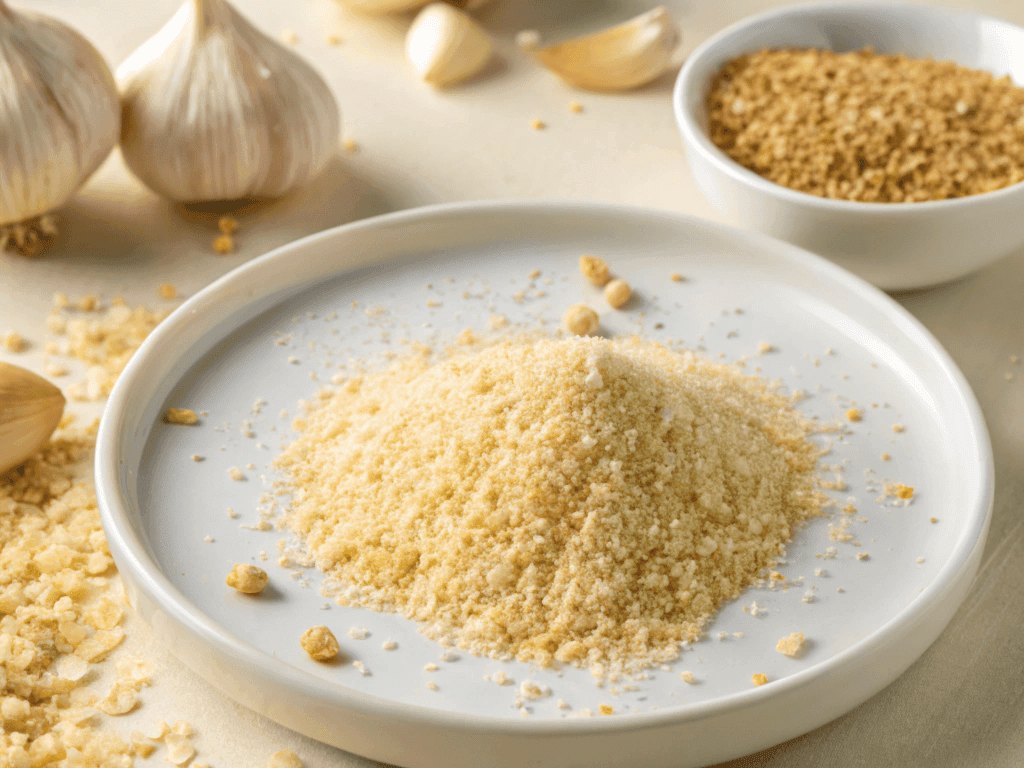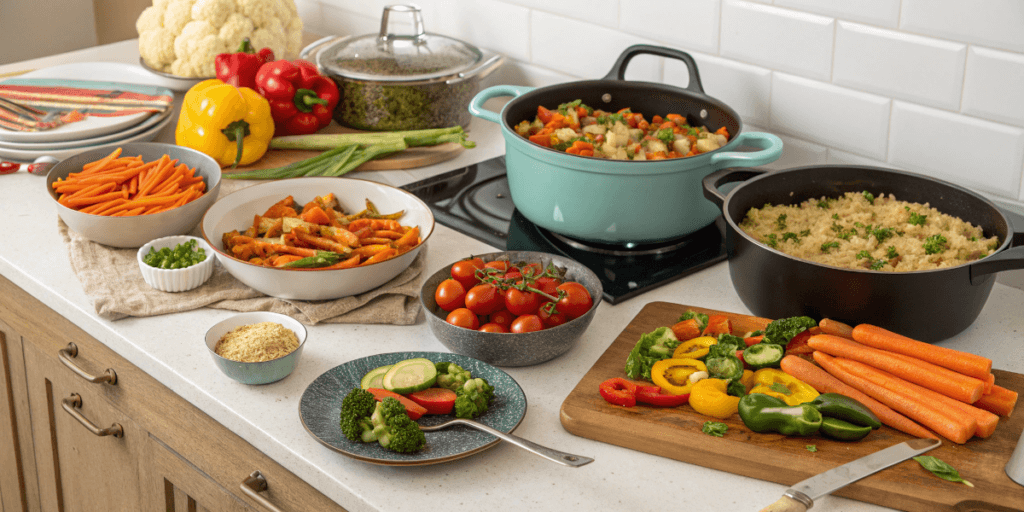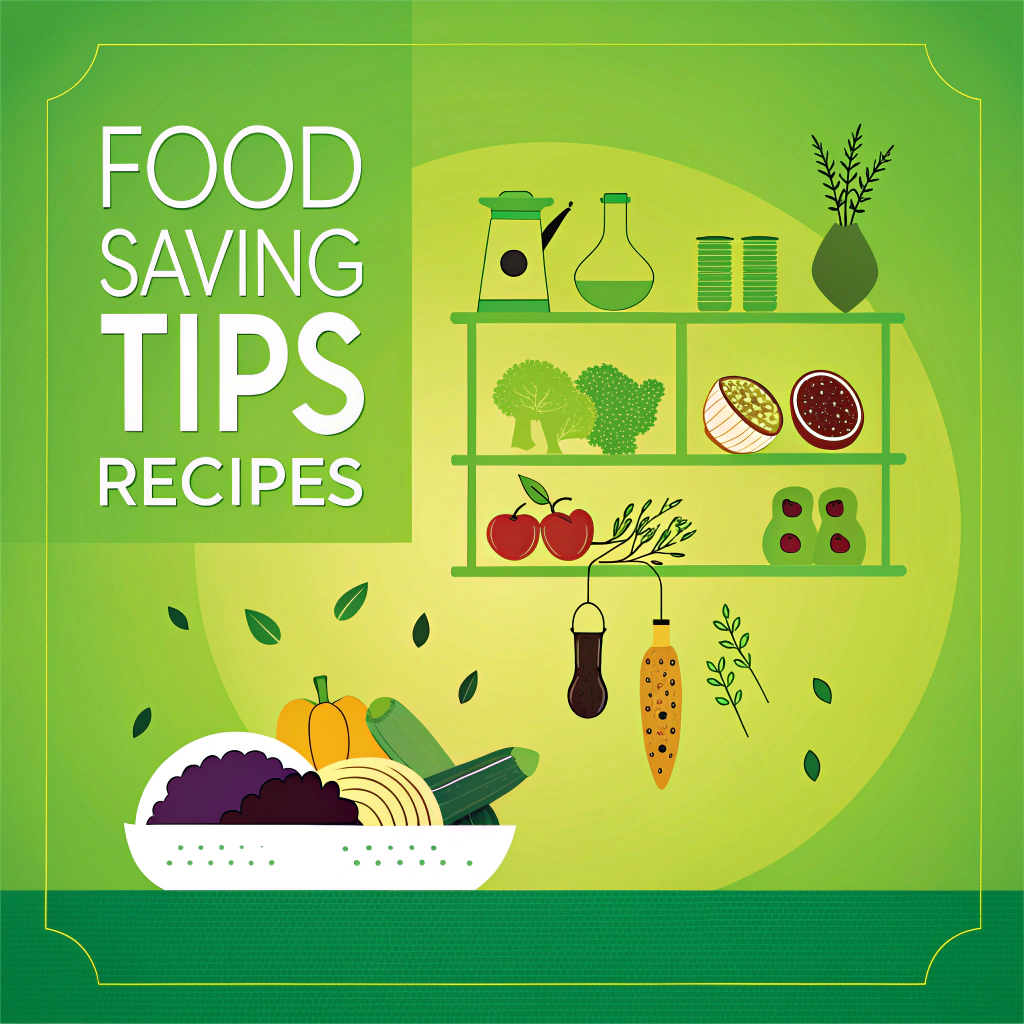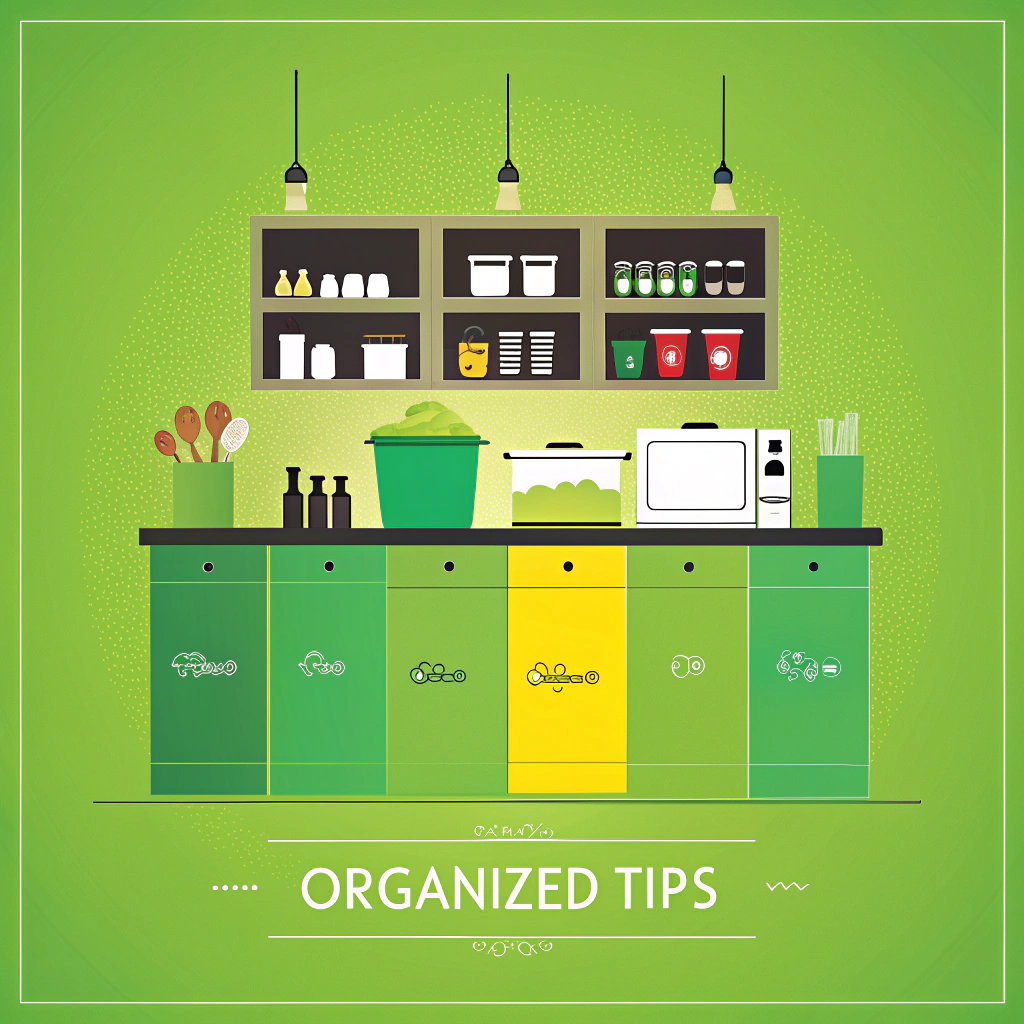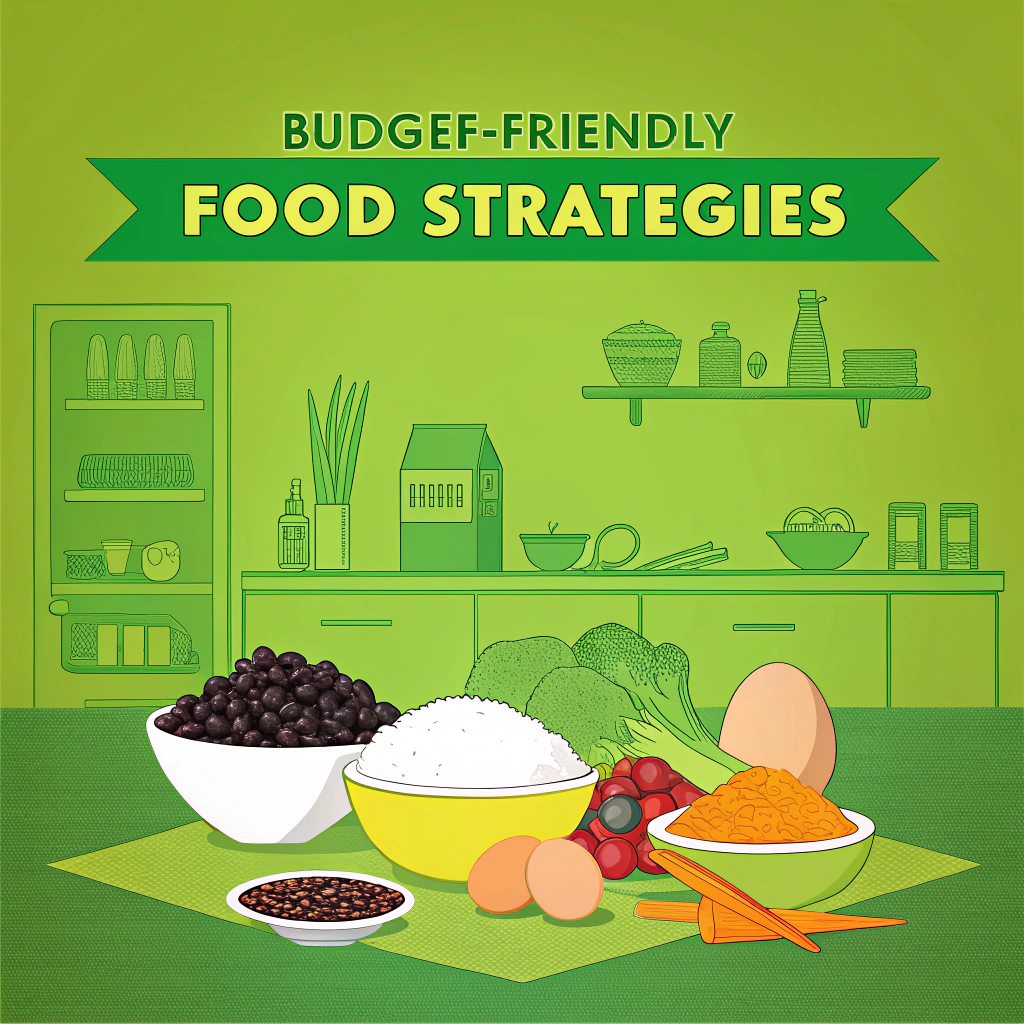Posted inBudget-Friendly
Imagine opening your fridge and finding delicious,ready-to-eat vegetarian meals waiting for you 😀. As we’ve mentioned in previous blog posts,like "10 Refrigerator Organization Ideas to Save Your Food…
Posted inSaving tips
Easy hacks to keep food fresh for longer
ENJOY READING How can I stop throwing away food every week? 🙄 If you’ve ever asked yourself this question while tossing out spoiled produce or leftovers, you’re not alone. The…
Posted by
 FoodSaverHub
FoodSaverHub
Posted inBudget-Friendly
Ultimate Guide: 10 Smart Week Meal Prep Ideas
Are you tired of the daily struggle to decide what to eat? 😣 Meal prepparing is the ultimate solution for saving time, reducing food waste, and sticking to your budget.…
Posted by
 FoodSaverHub
FoodSaverHub
Posted inBudget-Friendly
10 Smart Food Shopping Tips to Stretch Your Budget
Have you ever been through that hard moment when you feel like losing control and feeling stressed, simply because you didn’t plan ahead for your grocery shopping? 😟 You’re not…
Posted by
 FoodSaverHub
FoodSaverHub
Posted inOrganisation
10 Fridge Organization ideas to Save Your Food From Spoilage
★★★★★ 1 Why Organizing Your Refrigerator Matters Fridge organization ideas aren’t just about aesthetics—they play a vital role in reducing food waste, preserving freshness, and making your daily routines more…
Posted by
 FoodSaverHub
FoodSaverHub
Posted inSaving tips
DIY Garlic Granules: Make Fresh Flavor and Save Money Easily
DIY Garlic Granules: Make Fresh Flavor and Save Money Easily Garlic is the heart and soul of many dishes, bringing a bold, savory punch that transforms ordinary meals into something…
Posted by
 FoodSaverHub
FoodSaverHub

